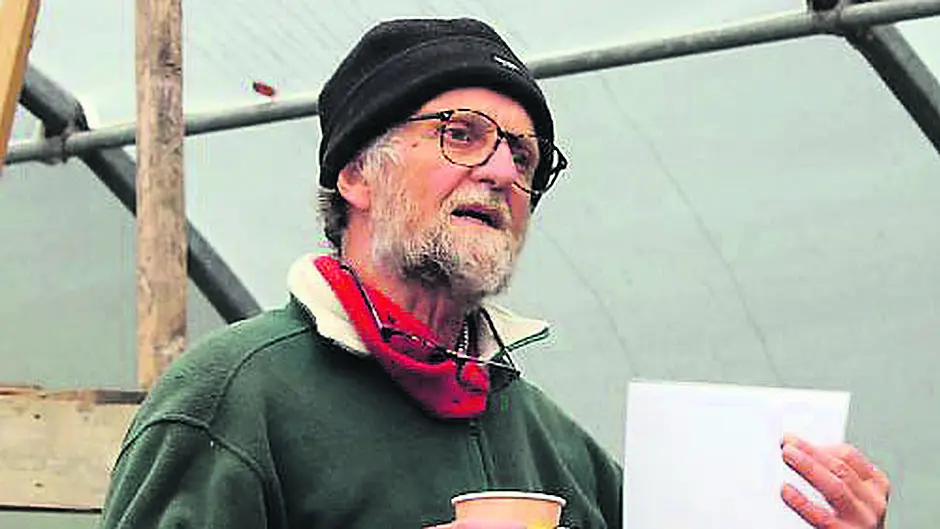IRELAND needs a big wake-up call to acknowledge the scale of species loss happening here.
So says artist and pioneering environmentalist Ian Wright who, among other things, challenged the forest service decision (through the EU) to only grant aid the planting of non-native conifers.
Ian and his fellow-artist wife Lynne moved to West Cork from the UK in the 1970s, and have been responsible for the planting of over 2m trees here.
They did that both on their own lands, and also through the setting up of the Irish National Forestry Foundation (now the Green Economy Foundation) which, among other things, established a private woodland estate comprising 320 acres of rare ancient woodland, and other maturing mixed woodland in Manch.
An accomplished sculptor and landscape architect has, in the past, produced limited edition ceramics with his partner Lynn trading as ‘Cors Its Ceramics’.
His work can be found in many private and public collections and has lectured in sculpture and ceramics at the National College of Art and Design Dublin, Crawford College of Art and Limerick College of Art and Design.
Ian has also worked on an environmental research project in the Indian Ocean, helping to run and maintain a 42ft ketch, taking scientists to sites along East African coast and islands as far east as Madagascar.
However, these days Ian spends a lot of his time in Tobago in the Caribbean – in fact, he spends more time there than at his Skibbereen home.
‘I go there mainly to stay sane. West Cork has treated me so well but I just feel so sad about so much species lost here. I find it too uncomfortable to be here. Not that long ago, we’d see 17 species of butterfly in a day, now we’re lucky to see 13 in a year.’
He’s worked in Tobago for the past eight years, where he facilitates the breeding and releasing of Tobago’s indigenous animals.
‘There’s still an amazing amount of biodiversity in Tobago, any work done rewards you in a few years.
For example, on three acres I worked on, there were originally 15 species of butterfly, and that increased to 80 in just three years. But I couldn’t see that happening here now. We’ve lost so many insects, the chain has been broken.
‘In a cubic foot of soil you’re supposed to see 120 earth worms but you’d be challenged to find one. We’ve messed up such a complex eco system, and there’s just no will there to get it back.
‘The Manch project demonstrated what we could have achieved, and what all of Ireland could look like with native trees, but instead what we have are Sitka Spruce deserts. I tried to fight that mindset for 25 years, but I just got burnt out in the end,’ he said.
‘I’ve battled my whole life, and now we’re at this tipping point and globally we’re still subsidising the fossil fuel industry. What I’m doing in Tobago is not altruistic, but keeping me sane,’ he said.
Ian acknowledged the work being down by groups locally.
‘I love that all of that is happening but the scale of land being poisoned is still horrific – 90% of our land is too sick to grow a tree. It is exciting to see new groups working to change things in West Cork, and I love that energy.
‘Change will come from people on the ground, and they are working together. It’s good to see that when I come back here as it will act as a catalyst for others. But we need to accept that without an environment we won’t have an economy.’










